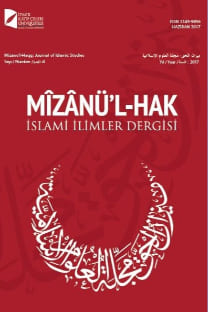Emperyalizmin “Medeniyet” Kavramını Aşmak İçin Umran Kavramına Yeniden Yönelmek
“Medeniyet” sorunlu, kafa karıştırıcı ve yanlış anlaşılmalara yol açabilen bir kavramdır. Öncelikle, “medeniyet” kavramı, Batı’nın geri kalan coğrafyaları işgal ve yağmaya tabi tuttuğu sömürgecilik asrına dayanan kökeni itibariyle sorunludur. Bu bağlamda mevzubahis kavram ister doğrudan isterse de dolaylı olarak telkin ettiği normatif yargılarla geçmiş devirlerde hizmet etmiş olduğu emperyalizmden ayrı düşünülemez. İkinci olarak “medeniyet” kavramı çok farklı zaman ve mekanlarda birbirine bazen zıt bazen ise benzer anlamlarla kullanılagelmiş olması hasebiyle kafa karıştırıcıdır. Üçüncü olaraksa “medeniyet” kavramının, meydana çıktığı ülkelerde dahi öznel tanımlarla çok farklı anlam alanlarında kullanımı neticesinde yanlış anlaşılmalara neden olabilen bir kavram olduğu göz önüne alınmalıdır. Bu sorunlara binaen, bu çarpık -ve hatta ölü- kavramın aşılmasının bir gereklilik olduğu görülecektir. Bu makale “umran” kavramını medeniyetten çok daha elverişli bir alternatif olarak teklif eder; ancak teklif olunan değişimin gerçekleşmesinin birçok şartın zorlanmasına bağlı olduğunu teslim etmektedir.
Anahtar Kelimeler:
Medeniyet, Umran, Medeniyet Teorileri, Emperyalizm, İbn-i Haldun
Transcending The Imperial Concept of “Civilization”: Recalling The Concept of al-ʿUmrān
The concept of “civilization” is extremely problematic, confusing, and misleading. First, the concept of “civilization” is very problematic because it originated as part of the imperial process in which the West invaded, controlled and looted the rest of the world. Furthermore, the concept cannot be isolated from its imperialist function, because its normative baggage is always present either explicitly or implicitly. Second, the concept of “civilization” is so confusing because of its many conceptualizations across space and time that are treated as if standalone, mutually exclusive, and categorically exhaustive. Third, the concept of “civilization” is ultimately misleading because it is subjective and it is used in many different ways, even in its origin countries, leading to an unsolvable oscillation in meanings and semantic fields. Therefore, it is imperative to transcend this distorted, or even dead, concept. This paper argues that the concept of “al-ʿumrān” may be a very possible alternative. However, it faces many challenges to be viable.
Keywords:
Civilization, Al-ʿumrān, Civilization Theories, Imperialism, Ibn Khaldun,
___
- Benlahcene, Badran. The term “civilization” in the Muslim intellectual Traditions. International Journal for Innovation Education and Research, 5(4), 44-49. (2017).
- Botz-Bornstein, Thorsten. "What is the Difference Between Culture and Civilization?: Two Hundred Fifty Years of Confusion." Comparative Civilizations Review 66, no. 66 (2012): 4.
- Bowden, Brett. The empire of civilization: the evolution of an imperial idea. (University of Chicago Press, 2009).
- Braudel, Fernand. A History of Civilizations. (New York: Penguin Books, 1995).
- Buckle, Henry Thomas. History of civilization in England. (Appleton, 1906).
- Burckhardt, Jacob. Reflections on history (1943); Burckhardt, Jacob. The civilization of the Renaissance in Italy. (Albert & Charles Boni, 1935).
- Davutoğlu, Ahmet. "Medeniyetlerin ben-idraki." [civilizational self-perception] Dîvân: Disiplinlerarası Çalışmalar Dergisi 3 (1997): 1-53.
- Den Boer, Pim. "Towards a Comparative History of Concepts: Civilisation and beschaving." Contributions to the History of Concepts 3, no. 2 (2007): 207-233.
- Elias, Norbert. The civilizing process, trans. Edmund Jephcott. (Oxford: Blackwell, 1994).
- Federici, Silvia. Enduring Western Civilization. (Westport, CT: Praeger, 1995).
- Freud, Sigmund. Civilization and its Discontents. (Hogarth Press, 1963).
- Fricker, Miranda. Epistemic injustice: Power and the ethics of knowing. (Oxford University Press, 2007).
- Görgün, Tahsin. “İbn Haldun’un görüşleri” [Ibn Khaldun’s views]. TDV İslam Ansiklopedisi, vol. 19, pp. 543-55 (Istanbul: TDV, 1999), c.a.: Işık, ibid.
- Görgün, Tahsin. Medeniyet: Modern Tartışmalar [civilization: modern debates]. (TDV İslam Ansiklopedisi, 2003), 298-301.
- Guizot, Francois. History of civilization in Europe. (Colonial Press, 1899).
- Hodgson, Marshall GS. Rethinking world history: essays on Europe, Islam and world history. (Cambridge University Press, 1993), p. 82.
- Huntington, Samuel P. "The clash of civilizations?." In Culture and politics, pp. 99-118. (New York: Palgrave Macmillan, 2000).
- Işık, Vahdettin. "The vision of order and al-‘Umran as an explanatory concept in the debates on civilization." (2017).
- Kalin, Ibrahim. "Dünya görüşü, varlık tasavvuru ve düzen fikri: Medeniyet kavramına giriş." Dîvân: Disiplinlerarası Çalışmalar Dergisi 29 (2010): 1-61, pp. 13-14.
- Monnier, Raymonde. "The Concept of civilisation from Enlightenment to Revolution: An Ambiguous Transfer." Contributions to the History of Concepts 4, no. 1 (2008): 106-136.
- Negri, A., and M. Hardt. Empire (Cambridge: Harvard University Press: 2001).
- Neill, Monty. "Western civilization invented, constructed, and desecrated." Science as Culture 8, no. 2 (1999): 231-238, p. 231.
- Patterson, Thomas C. Inventing western civilization. (NYU Press, 1997).
- Said, Edward. Orientalism (New York: Vintage, 1979).
- Şentürk, Recep. "Unity in multiplexity: Islam as an open civilization." (2011).
- Spengler, Oswald. The decline of the West. (Oxford University Press, USA, 1991).
- Spivak, Gayatri Chakravorty. "Can the subaltern speak?." Can the subaltern speak? Reflections on the history of an idea (1988): 21-78.
- Toynbee, A. (1957). A Study of history. abridged by Dc Somerville. Oxford Paperbacks.
- ابن خلدون، عبد الرحمن، عبد السلام شدادي (تحقيق(، المقدمة، (الدار البيضاء: بيت الفنون والعلوم والآداب، ٢٠٠٥).
- عزت، هبة رءوف، نحو عمران جديد، (بيروت: الشبكة العربية للأبحاث والنشر، ٢٠١٥)p. 155..
- ISSN: 2149-9896
- Yayın Aralığı: Yılda 2 Sayı
- Yayıncı: İzmir Kâtip Çelebi Üniversitesi İslami İlimler Fakültesi
Sayıdaki Diğer Makaleler
Isparta Seferağa Camii ve Haziresi
F. M. CORNFORD, Dinden Felsefeye
İçerisine Fare Düşen Yağın Kullanımı İle İlgili Rivâyetin Tahric ve Tahlili
İLİTAM Bölümü Öğrencilerinin Hadis Dersine Yönelik Tutumları
Muhammet Fatih GENÇ, Mehmet AYHAN
Halil İbrahim ERYILMAZ, Bahar SELİMGİL
Demirci Camilerindeki Ahşap Tavan Göbekleri
Emperyalizmin “Medeniyet” Kavramını Aşmak İçin Umran Kavramına Yeniden Yönelmek
İslam Dininde Tevhid-Özgürlük İlişkisi
Neslihan KANSU YETKİNER, Çeviribilim ve Edimbilim İlişkisi Üzerine
